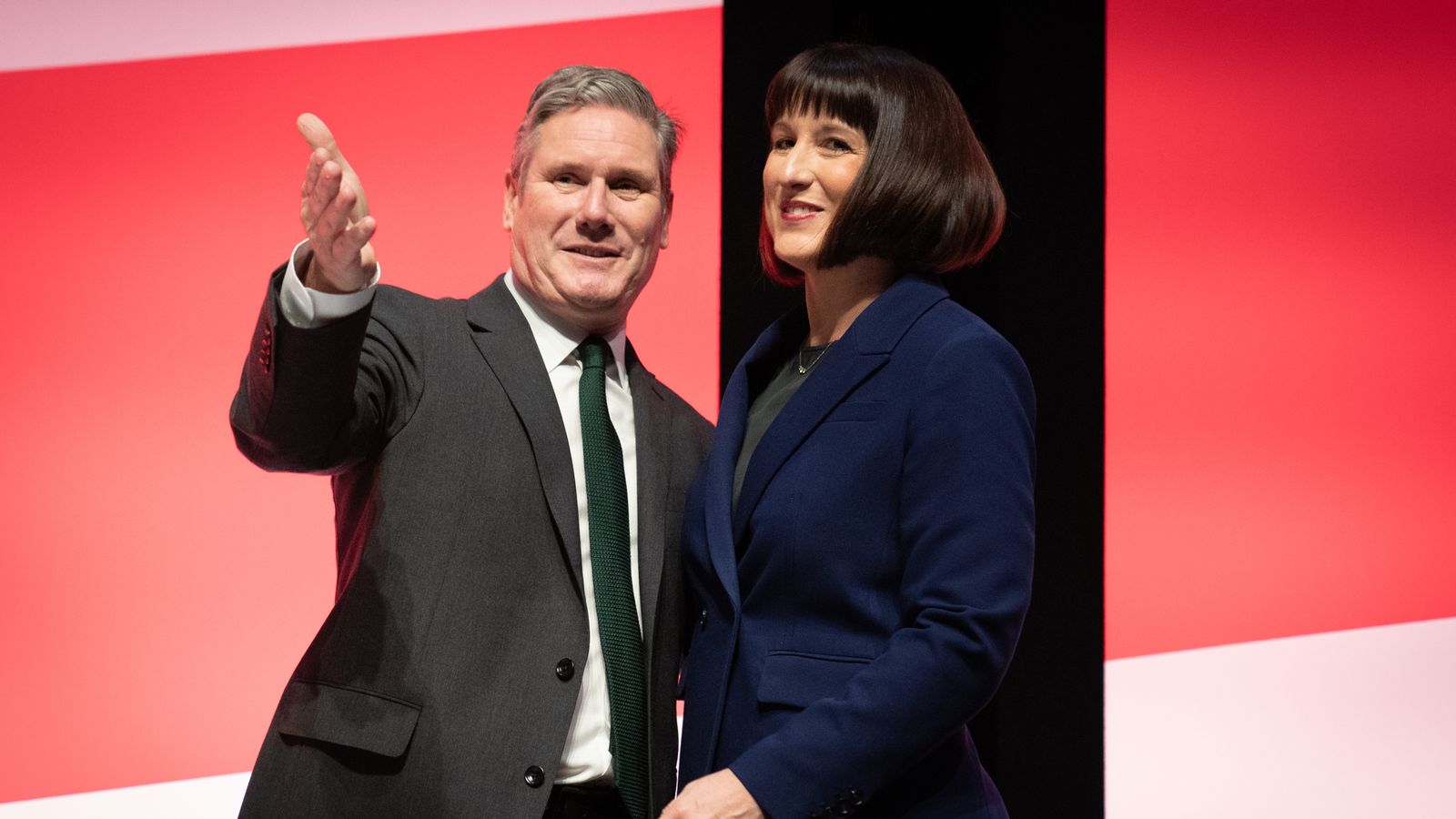The incredible – needless – tangle that Labour got itself into over its £28bn green investment policy only truly became clear today as leader Sir Keir Starmer and shadow chancellor Rachel Reeves were killing it.
The flagship policy had been until today that it borrows £28bn a year to turn Britain green.
But at 5pm, Labour announced it would only be borrowing just a tenth of that sum – £2.6bn a year – an extraordinary switch.
Politics Live: Starmer ditches his ‘biggest dividing line’ with Tories
Yet in the same breath, Starmer and Reeves say that they will continue to press ahead with all the projects they were talking about doing before this change, reducing the scale of spending on just one project while keeping all the rest in train.
Over the course of briefings and interviews did the true scale of the underlying mess become clear.
All the agony and pain that Labour has been absorbing over this policy – a bruise the Tories have been mercilessly punching – was for a headline policy that, in reality, didn’t exist in detail at all.
Labour’s climate climbdown – how damaging is it?
What is Labour’s £28bn green prosperity plan?
Labour rejects ‘bogus’ civil servant costing of energy efficiency plans
As recently as Tuesday, Starmer recommitted to spending £28bn a year. Last month, he told Sky News that the Tories were trying to “weaponise this issue, the £28bn… this is a fight I want to have”.
Yet even as he said this, it wasn’t true.
Since it was first announced two years ago, this policy has already been changed three times – to delay its introduction in full until the second half of the parliament, make it subject to fiscal rules, and to set this target inclusive of existing government decisions.
This meant that despite repeating the headline figure, Labour was never going to spend anything like £28bn.
Some £10bn of the £28bn had already been committed by this Tory government – so would not need further additional borrowing by a future Labour government.
Read More:
What is Labour’s £28bn green prosperity plan?
On top of that, Labour never worked out how to spend all of the remaining £18bn a year. Around £6bn of that had no plan attached to it whatsoever, so that’s been slashed today – a cost-free cut.
Shadow climate secretary Ed Miliband might have had designs for how to spend that remaining sum but it never appears to have passed muster with the shadow Treasury team.
Yet it seems incredible that Labour was drawing fire, worrying and losing political capital and sleep over a borrowing pledge it did not know how to spend.
It had become a strange mirage of a policy – about signalling intent – yet Starmer appeared determined to continue fighting in public to defend it – until today. Now he will spend just £4.7bn, only £2.6bn of which is from borrowing.
Nobody would say this has been easy.
Click to subscribe to the Sky News Daily wherever you get your podcasts
But in killing it, Labour is setting a clear course that very tight fiscal discipline matters most, just at a point where big decisions are about to be made that will determine what Labour does in office.
Starmer and Reeves made clear that the fiscal rules – artificial rules to curb borrowing – are more important than anything else, yet have not spelled them out in full.
Reeves – who seemed to be the architect of today’s U-turn – is pushing to copy the Tory fiscal rules, meaning an even tighter regime than the one implemented by Gordon Brown as chancellor in 1997.
This worries some, as it will hinder spending all the way through the next parliament if as many think growth remains anaemic.
It is one thing to scrap an artificial spending pledge which had become a political millstone.
But if Reeves is about to bind the hands of Labour for the whole of the next parliament, with the blessing of Starmer, decisions like this could become more tricky and more frequent.








